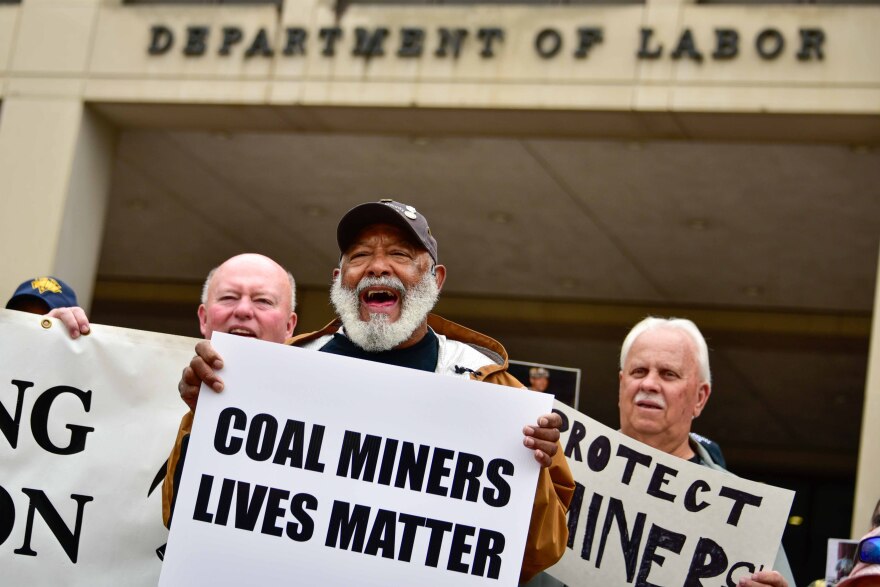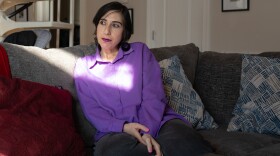Former coal miners and their families held a rally in front of a Department of Labor building in Washington D.C. on Tuesday. They say they’re frustrated and tired of delays to enforcement of a safety measure designed to protect miners from toxic silica dust.
After a court froze the long-awaited safety rule, Trump administration lawyers have done little to challenge the stay. Instead, they’ve blocked interest groups including mine unions and medical associations from advocating for its enforcement.
National Black Lung Association President Gary Hairston yelled toward the building, tears streaming down his face.
“Congress, y’all ain’t doing nothing for us! We need y’all to stand up for us coal miners! We let us stand beside you when you run for election, but you won’t stand beside us when we need your help. We need your help right now!”
The outgoing union president of the United Mine Workers of America, Cecil Roberts, compared efforts to delay the silica dust rule to a murderer suffocating someone with a pillow.
“Those responsible for a lack of action, those responsible for challenging this rule…you are just as guilty as the person that has that pillow right now killing their spouse or some child,” he said. “Let’s stop the killing in Appalachia.”
For years, doctors have documented a rise in black lung disease in Central Appalachian coal mines. They say it’s being caused by the inhalation of silica dust — a byproduct of mining when rock is ground up in pursuit of valuable mineral deposits like coal.
Silica dust is a known health hazard in all sorts of other industries too, like counter top manufacturing and construction. But miners were allowed to be exposed to double the amount of respirable silica dust than any other type of worker. That changed last year.

Under the Biden administration, the federal Mine Safety and Health Administration created stricter safety standards, putting miners' allowable exposure level in line with every other workplace in America. It also requires medical surveillance programs and testing in non-coal mines, which represent the vast majority of all U.S. mine operations. Violations to the rule would come with stiff penalties.
Mining companies sued, claiming the new requirements would cause “irreparable harm” to their businesses. Attorneys with the Biden administration filed a lengthy defense to protect the new rule, but things changed under the Trump administration.
Trump lawyers have blocked mine unions and medical associations from defending the safety rule in court. The mining companies say in court filings that they are “discussing potential settlement” with the government.
“The agency that is tasked with protecting coal miners does not even have the stomach to fight for [the new rules] themselves,” said Brian Sanson, incoming UMWA president. “Worse than that, they prevent the union from stepping in to do that job for them.”
A request for comment from MSHA about their defense of the silica dust rule received an automatic reply due to the government shutdown.
In the meantime, black lung victims Hairston says he won’t stop raising alarms about a need for strong enforcement of a silica dust rule, to prevent more miners from suffering from the disease.
“We need something done,” he said. “If we don’t speak up, we won’t get nothing done.”





